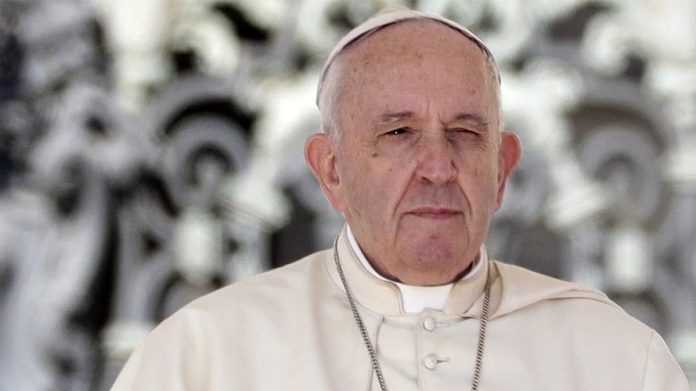The Rev. Thomas J. Reese, a Jesuit priest, is a Senior Analyst at RNS. Previously he was a columnist at the National Catholic Reporter (2015-17) and an associate editor (1978-85) and editor in chief (1998-2005) at America magazine. He was also a senior fellow at the Woodstock Theological Center at Georgetown University (1985-98 & 2006-15) where he wrote Archbishop, A Flock of Shepherds, and Inside the Vatican. Earlier he worked as a lobbyist for tax reform. He has a doctorate in political science from the University of California Berkeley. He entered the Jesuits in 1962 and was ordained a priest in 1974 after receiving a M.Div from the Jesuit School of Theology at Berkeley. The views expressed in this commentary do not necessarily represent those of BCNN1.
As archbishop of Philadelphia, Charles Chaput was not afraid to take a different line from the pope on issues facing the church. In 2016, after Pope Francis opened the possibility of Communion for divorced and remarried Catholics, Chaput added a stipulation: In his diocese, such couples who wanted to receive the Eucharist would have to abstain from sex.
More recently, he criticized the Rev. James Martin, a Jesuit priest whom the pope has met with and encouraged in his ministry to LGBTQ Catholics.
A Catholic bishop, even one who disagrees with a new pope, cannot just be fired and replaced. The pope must wait until the bishop reaches retirement at 75 years of age before appointing a successor.
But if change is slow, the direction is clear, and Francis, like popes before him, is slowly filling the American hierarchy with bishops who reflect his values and priorities.
That’s what happened last week when Francis accepted the resignation of Chaput, the conservative culture warrior who turned 75 in September, and appointed Nelson Perez to be the next archbishop of Philadelphia. Since 2017, Perez has been bishop of Cleveland, where he had succeeded an unpopular bishop who had been tainted by his association with disgraced Cardinal Bernard Law of Boston.
But don’t think that Perez is a liberal who will lead his flock to the barricades calling for a change in church teaching on the ordination of women, gay marriage or birth control. That is not going to happen, any more than Francis would change such teaching. But neither sees any point in obsessively repeating arguments when everyone knows what the church teaches.
Rather, the most noticeable change between Perez and Chaput will be one of style. Chaput saw himself as an intellectual who had to take on American culture and politics when he thought it was out of line with church teaching. If he had not been a priest, he would have been happy as a conservative academic, commentator or talk radio host.
With Chaput’s retirement, the conservative bishops in the U.S. have lost their intellectual leader and the American church has reached a turning point. Chaput and Cardinal Francis George of Chicago, who died in 2015, had been the most forceful conservative voices in the American hierarchy for a generation. With both of them gone, we will see a more pastoral vision of Catholicism promoted by the bishops.
Source: Religion News Service
All Content & Images are provided by the acknowledged source
